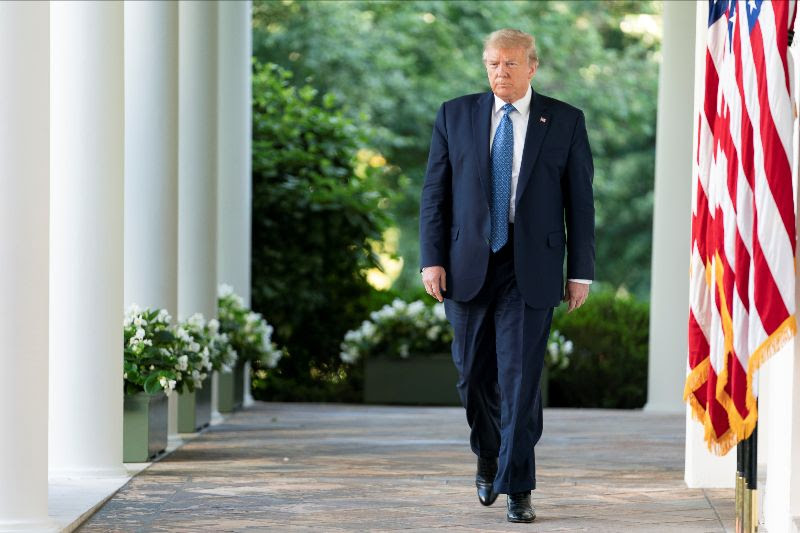by Neville Teller
Will you offer us a hand? Every gift, regardless of size, fuels our future.
Your critical contribution enables us to maintain our independence from shareholders or wealthy owners, allowing us to keep up reporting without bias. It means we can continue to make Jewish Business News available to everyone.
You can support us for as little as $1 via PayPal at office@jewishbusinessnews.com.
Thank you.
Having apparently lost the glittering prize of Saudi Arabia joining the Abraham Accords before he leaves office, Trump has hastened to finalise an Israeli-Moroccan normalization deal, and is grasping at another possible opportunity. Back in 2017, following years of dissension, Saudi Arabia and neighboring states severed all relations with Qatar. Could Trump bring an end to what has become known as the Gulf Crisis? Why else would Trump’s son-in-law and special adviser, Jared Kushner, have visited the Gulf region on November 30?
Kushner met Saudi Crown Prince Mohammed bin Salman in Riyadh, and then traveled to Qatar on December 2 for a meeting with the Emir of Qatar, Sheikh Tamim bin Hamad Al Thani. Following these discussions, media reports suggested that Qatar and Saudi Arabia were close to striking an agreement to end the dispute.
Qatar is a stand-alone Middle Eastern state in more ways than one − geographically, politically, economically, influentially. Itself a small peninsula projecting into the Persian Gulf from the vast Arabian Peninsula, Qatar clearly aspires to become a major player in the region and beyond. In pursuit of this objective, its tactics have sometimes puzzled, sometimes infuriated, its neighbors. But then, as one of the world’s wealthiest nations – and certainly number one on a per capita basis – Qatar has reckoned that it could afford the luxury of proceeding along its own preferred path, without too much concern for what others thought.
For example, Qatar’s strategy of backing Islamists − from Hamas in Gaza, to the Muslim Brotherhood in Egypt, to hard-line Syrian opposition fighters − while also offering itself as a key US ally, was rooted in pragmatism. Qatar wanted to extend its influence in the region by being friends with everybody. “We don’t do enemies,” Qatar’s one-time foreign minister is reported to have said, “we talk to everyone.” And talk they certainly do, through the Qatari-owned Al Jazeera world-wide media network.
But Qatar’s wayward policies, especially with regard to Islamist groups, had long infuriated its neighboring Arab states. Back in January 2014, when Qatar’s 33-year-old Emir, Sheikh al-Thani, had been in power for less than a year, Gulf states suddenly pressured Qatar to sign an agreement undertaking not to support extremist groups, not to interfere in the affairs of other Gulf states, and to cooperate on regional issues.
When the Qatari government flatly refused to comply, Saudi Arabia, the United Arab Emirates (UAE) and Bahrain broke off diplomatic relations. The inexperienced Al-Thani was unable to withstand the pressure. In April 2014, at a meeting in Saudi Arabia, his arm was twisted, and the Qataris signed an undertaking known as the Riyadh agreement.
Saudi Arabia, the UAE, and Bahrain clearly took away a very different view of what had been agreed than the Qataris. They expected Qatar to curtail its support for extreme Islamism, particularly the Muslim Brotherhood and its supporters. They believed that Qatar had agreed to remove, or at least reduce, the appearance of Islamists on Al Jazeera and other Qatari media, and especially to eliminate the constant Muslim Brotherhood-based criticism of Egypt’s government and its president, Abdel Fatah al-Sisi.
They soon discovered that Qatar had no intention of meeting their expectations. It simply continued its support of Islamist extremists intent on undermining the stability of the region. Finally, their patience exhausted, the Gulf states and Egypt took drastic action. On June 5, 2017, without any sort of warning, they broke off diplomatic relations with Qatar, suspended all land, air and sea traffic, and virtually imposed a trade blockade.
This bombshell initiative had been preceded by Trump’s visit to Saudi Arabia on 20 May for a meeting with some 50 leaders of the Arab world. On the subject of Islamist extremism Trump had been characteristically blunt. “A better future is only possible if your nations drive out the terrorists and extremists…Drive them out of your communities. Drive them out of your holy lands. And drive them out of this Earth.”
Qatar has been under siege for more than three years. Although most major trade routes into and out of the country have been closed off, Qatar has been sustained by continuous shiploads of food and other goods sent in by Iran and Turkey. As for exports, Qatar is the largest global exporter of liquefied natural gas, and this has been maintained. As a result, the country seems to have weathered the blockade and to be reasonably well placed to sustain itself indefinitely.
According to most media comment the Trump initiative has yielded positive results. On December 4 Qatar’s foreign affairs minister, Mohammed Al-Thani, said “We are optimistic about a resolution to the Gulf crisis, but we cannot say that all problems will be solved in one day.”
The New York Times sees a connection between ending the dispute and Trump’s aim of weakening the regime in Iran, which has been sustaining Qatar’s economy. The paper reported that high among the proposed first steps, Trump is pressing Saudi Arabia to open its airspace for Qatari flights. Over the past three years Qatar has been paying millions of dollars to use Iran’s airspace.
The Abraham Accords will surely be added to the credit side of Trump’s account when his years in office are eventually submitted to the judgement of history. If his last-minute effort to resolve the Gulf Crisis yields a positive result, his reputation as a surprising and unexpected peace-maker will be further enhanced.

Neville Teller is read Modern History at Oxford University. He has written about the Middle East for more than 30 years and has published five books on the subject, and blogs at a Mid East Journal. His latest book is “Trump and the Holy Land: 2016-2020”.
He was made an MBE – The Most Excellent Order of the British Empire – in 2006 “for services to broadcasting and to drama.”




